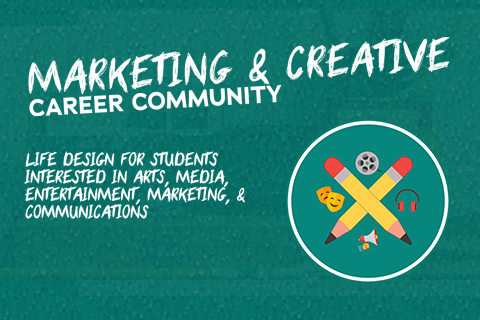Explore a career in Publishing, Journalism, and Writing.
Publishing, journalism, and writing leverages the written word in the transmission of knowledge through the creation of print, broadcast, and online media content. Subfields include print and broadcast journalism, technical and niche writing, editorial and copywriting, online content development and web writing, and creative writing. While traditional print media are being rapidly digitized, conveying information in writing is still a critical part of our world today.
The publishing world includes corporate and independent publishing houses, literary agencies, magazine publishers, university presses, and online content distributors. Roles range widely, including editing, publicity, sales, and production. Internships abound and can be paid or unpaid.
Employment Opportunities
Those interested in becoming journalists should aim to build a portfolio of work starting in college and get published. Journalism degrees are the standard. Print journalism opportunities range from local alternative weeklies to large circulation newspapers, magazines, trade publications, and wire services. Broadcast journalists can be found at major television broadcast and cable networks, national/state/regional radio networks, and independent syndications.
The most important thing for aspiring writers to do is to build a portfolio and get published. Blogs and websites are a great opportunity to extend your reach and get noticed, as are writing competitions. Technical and niche writing––at corporations or government agencies––is another option and can include a wide variety of interests, such as food, science, technology, environmental, and other fields. For this field, it’s a good idea to major and possibly get a graduate degree in the area of specialization (for example, biology for medical writing). Creative writers should explore how books, plays, poetry, and other genres are authored and distributed; MFA degrees are available to help writer hone their craft.
-
Successful candidates have (depending on the field or role):
- Basic knowledge of cultural institutions, the art market, and current trends
- Excellent writing skills (grammar, syntax, style) with impeccable editing skills
- Ability to conduct independent, unbiased, and nonpartisan research and reporting
- Excellent organizational and administrative skills, with a strong emphasis on detail
- Demonstrated knowledge of and interest in subject matter (breadth and depth)
- Time management and multitasking skills with proven ability to meet deadlines in a fast-paced environment
- Solid computer skills, including desktop publishing, social media, online content creation, and research
-
Hiring cycle:
- Internship Cycle – Occurs later than many other industries with heaviest being throughout the spring semester and summer; applications typically become available in the fall or winter (start early!)
- Job Cycle – Occurs later than many other industries with heaviest being throughout the spring semester
- Freelance Work – it is quite common for writers and editors to freelance – something that usually starts part-time and could expand to full-time. Students should build their portfolios and send writing pieces out to be published. In addition to their writing portfolios, freelancers must also build business knowledge as they are, technically, running their own small business. Knowledge of business types, budgeting, marketing, and contracts can ensure that you are properly set up and can claim things appropriately on taxes. Without belonging to a large organization, freelancers also need to turn to other groups, such as the Freelancers Union, for things such as health insurance and retirement options.









